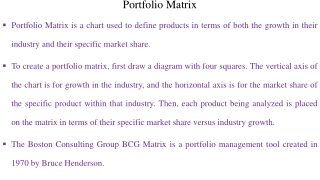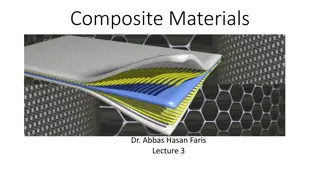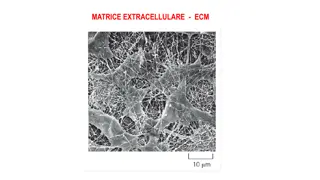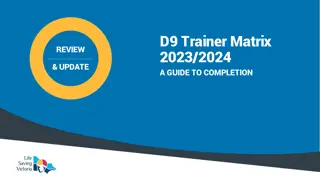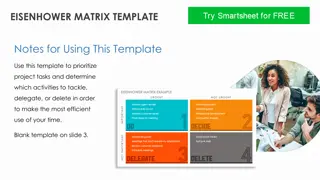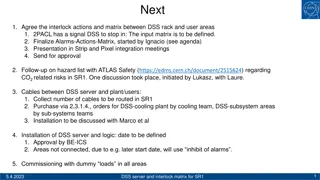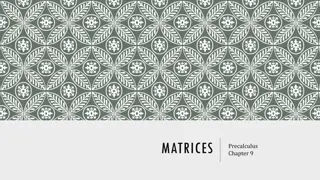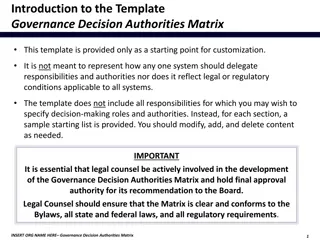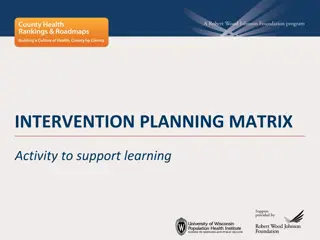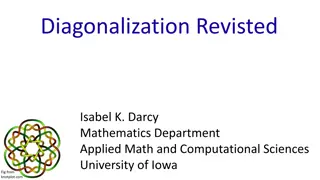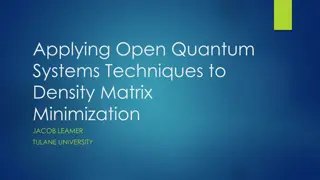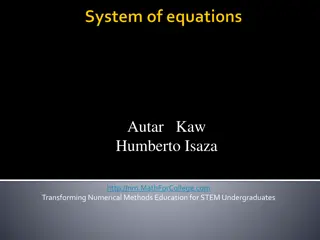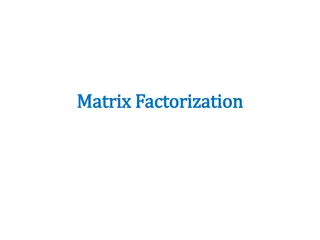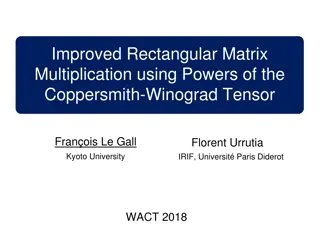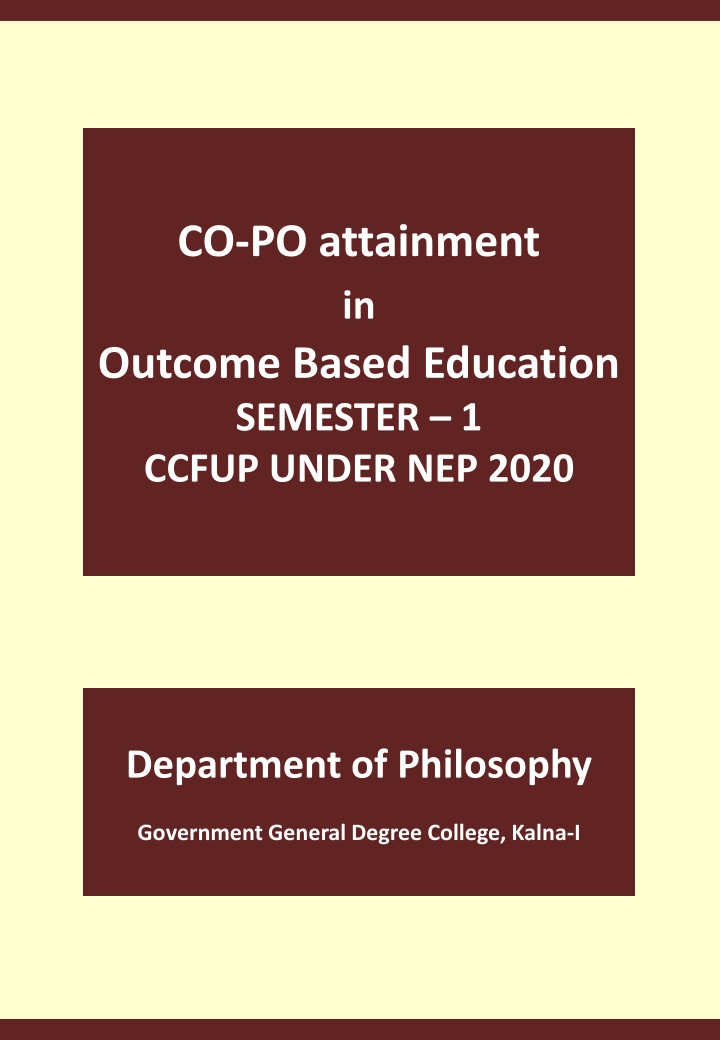
Philosophy Major Course Overview: Indian and Western Philosophy
Explore the detailed introduction to Indian and Western Philosophy, covering topics like Vedic and Upanishadic world-views, Jainism, Buddhism, Pre-Socratic Period, Plato, and Aristotle. Enhance your critical thinking, problem-solving, and analytical reasoning skills while delving into the rich history of philosophical thought.
Download Presentation

Please find below an Image/Link to download the presentation.
The content on the website is provided AS IS for your information and personal use only. It may not be sold, licensed, or shared on other websites without obtaining consent from the author. If you encounter any issues during the download, it is possible that the publisher has removed the file from their server.
You are allowed to download the files provided on this website for personal or commercial use, subject to the condition that they are used lawfully. All files are the property of their respective owners.
The content on the website is provided AS IS for your information and personal use only. It may not be sold, licensed, or shared on other websites without obtaining consent from the author.
E N D
Presentation Transcript
CO-PO attainment in Outcome Based Education SEMESTER 1 CCFUP UNDER NEP 2020 Department of Philosophy Government General Degree College, Kalna-I
Program Outcome (PO) PO1: Disciplinary knowledge PO2: Communication skills PO3: Critical Thinking PO4: Problem solving PO5: Analytical reasoning PO6: Research related skill PO7: Scientific reasoning PO8: Moral and ethical awareness / reasoning PO9: Lifelong learning Program Specific Outcome (PSO): UG Philosophy PSO(1): Problem solving ability: Enhances the analytical skills of students and inspires to incorporate philosophical thoughts in solving their real life problems. PSO(2): Moral and Ethical awareness: Develops the sense of morality, honesty, truth and other values amongst the students. PSO(3): Familiarity with recent developments: Learning up to date technique and accept answers to philosophical question.
Course Content PHILOSOPHY MAJOR COURSE CODE: PHIL1011 OUTLINES OF PHILOSOPHY: INDIAN AND WESTERN I SYLLABUS Module-I Detailed Introduction: General Features of Indian Philosophy, Basic concepts of the Vedic and the Upani adic world-views Module-II C rv ka:pram atattva, ja av da and deh tmav da Jainism: anek ntav da, sy dv da and nayav da, Theory of self and liberation, Nature of substance: Relation between Substance, Attributes & Modes Buddhism: Four Noble Truths, prat tyasamutp dav da, k a abha gav da, nair tmyav da, Four Major Schools of Buddhism Module-III The Pre-Socratic Period :Ionian School, Parmenides, Heraclitus, Zeno Plato : Theory of Knowledge, Theory of Ideas Module-IV Aristotle :Refutation of Plato s Theory of Ideas, Theory of Substance, Form and Matter, Theory of Causation
PHILOSOPHY MAJOR COURSE CODE: PHIL1011 Course Outcomes (COs) After completion of this course, students will be able to Knowledge Level (Bloom s Level) PSOs Mapping Sl. No. Course Outcomes (COs) POs Mapping Explain the general feature of classical Indian Philosophy and acquire knowledge of Vedic Theism and Upanishadic conception Atman and Brahman. L2: Understanding 1, 2, 3 CO:1 1,2,3,4,5,6,8,9 Describe Charvaka Philosophy and its epistemology and metaphysics. L1: Remembering 3 CO:2 1,2,3,5,6 Demonstrate the Jaina metaphysics, epistemology and the liberation of self. L3: Applying 1, 2, 3 CO:3 1,2,3,4,5,6,8,9 Illustrate the Buddha theory of causation, momentariness and self. They also acquainted with the different schools of Buddhism. L4: Analyzing 1, 2, 3 CO:4 1,2,3,4,5,6,8,9 Summarize the ionian school, parmenides, Heraclitus and Zeno of the pre Socratic periods. L5: Evaluating 1, 2, 3 CO:5 1,2,3,4,5,6,8,9 CriticizePlato s theory of ideas by Aristotle and Aristotle's concept of Substance, Form and Matter, and theory of causation. L5: Evaluating 1, 2, 3 CO:6 1,2,3,4,5,6,8,9 Programme Articulation Matrix (CO-PO Matrix) PO1 1 PO2 1 PO3 2 PO4 1 PO5 2 PO6 2 PO7 - PO8 2 PO9 2 PSO1 1 PSO2 2 PSO3 1 CO1 1 1 1 - 1 1 - - - - - 1 CO2 1 1 2 1 2 1 - 2 2 1 2 1 CO3 1 1 1 1 2 1 - 2 1 1 2 1 CO4 1 1 1 1 2 1 - 1 1 1 1 1 CO5 1 1 2 1 2 1 - 1 1 1 1 1 CO6 1.00 1.00 1.50 1.00 1.83 1.17 - 1.60 1.40 1.00 1.60 1.00 Average
Course Content SEC PAPER-I PHILOSOPHY (HONS) PHILOSOPHY OF HUMAN RIGHTS COURSE CODE: PHIL1051 SYLLABUS Module-I Definition and nature of Human Rights Origin and historical development of Human Rights during ancient, medieval, modern and contemporary period. Module-II Natural Rights tradition: Thomas Hobbes, John Locke and Thomas Paine, Some Reactions to Natural Rights tradition: Jeremy Bentham, Edmund Burke Contemporary perspective: Joel Feinberg, Thomas Hill Green, Rex Martin and Margaret MacDonald. Module-III Indian Constitution: Preamble, Fundamental Rights and Duties. Fundamental Rights vis- -vis Human Rights.
PHILOSOPHY OF HUMAN RIGHTS; COURSE CODE: PHIL1051 Course Outcomes (COs) After completion of this course, students will be able to Knowledge Level (Bloom s Level) PSOs Mapping Sl. No. Course Outcomes (COs) POs Mapping Define Human Rights and nature of Human Rights L1: Remembering 1, 2, 3 CO:1 1,2,3,4,5,6,8,9 Explain Origin and historical development of Human Rights during ancient, medieval, modern and contemporary period Summarised Natural Rights tradition: Thomas Hobbes, John Locke and Thomas Paine, Some Reactions to Natural Rights tradition: Jeremy Bentham, Edmund Burke L2: Understanding 1, 2, 3 CO:2 1,2,3,4,5,6,8,9 L5: Evaluating 1, 2, 3 CO:3 1,2,3,4,5,6,8,9 Demonstrate Contemporary perspective: Joel Feinberg, Thomas Hill Green, Rex Martin and Margaret Mac Donald L3: Applying 1, 2, 3 CO:4 1,2,3,4,5,6,8,9 Illustrate Indian Constitution: Preamble, Fundamental Rights and Duties L4: Analyzing 1, 2, 3 CO:5 1,2,3,4,5,8,9 Distinguish betweenFundamental Rights and Human Rights L2: Understanding 1, 2, 3 CO:6 1,2,3,4,5,8,9 Programme Articulation Matrix (CO-PO Matrix) PO1 PO2 PO3 PO4 PO5 PO6 PO7 PO8 PO9 PSO1 PSO2 PSO3 CO1 2 2 2 2 2 1 - 1 2 2 2 1 CO2 1 2 2 2 2 1 - 2 2 2 2 1 CO3 1 1 1 1 2 1 - 2 2 1 2 1 CO4 1 1 1 1 2 1 - 2 2 1 2 1 CO5 2 2 2 2 2 - - 3 2 2 3 2 CO6 1 1 2 1 2 - - 2 2 2 2 1 Average 1.33 1.50 1.67 1.50 2.00 1.00 - 2.00 2.00 1.67 2.17 1.17
Course Content PHILOSOPHY MINOR COURSE TITLE & COURSE CODE PHILOSOPHY: INDIAN AND WESTERN I CODE: PHIL1021 SYLLABUS Module-I Introduction: General features of Indian Philosophy C rv ka : pram atattva, ja av da and deh tmav da Module : II Jainism : anek ntav da, sy dv da and nayav da Buddhism: Four noble truths, prat tyasamutp dav da, k a abha gav da, nair tmyav da Module- III Metaphysics : Nature of Metaphysics, Elimination of Metaphysics Realism : Na ve Realism, Scientific Realism, Representative Realism Idealism: Subjective Idealism, Objective Idealism Module-IV Substance : Views of Descartes, Spinoza, Locke and Berkeley Relation between Mind and Body : Interactionism and Parallelism
PHILOSOPHY: INDIAN AND WESTERNI CODE: PHIL1021 Course Outcomes (COs) After completion of this course, students will be able to Knowledge Level (Bloom s Level) PSOs Mapping Sl. No. Course Outcomes (COs) POs Mapping Explain the general feature of classical Indian Philosophy and different metaphysical theories of C rv ka Philosophy. L2: Understanding 2, 3 1,2,3,5,6,8,9 CO:1 Demonstrate the Jaina anek ntav da, sy dv da and nayav da. L3: Applying 1, 2, 3 1,2,3,4,5,6,8,9 CO:2 Illustrate the Buddha theory of Four noble truths, prat tyasamutp dav da, k a abha gav da, nair tmyav da. L4: Analyzing 1, 2, 3 1,2,3,4,5,6,8,9 CO:3 Differentiate different forms of Realism and Idealism. L4: Analyzing 1, 3 1,2,3,4,5,6,9 CO:4 Evaluate Descartes, Spinoza, Locke and Berkeley s theory of Substance. L5: Evaluating 1, 3 1,2,3,4,5,6,9 CO:5 Criticize the theory of Interactionism and Parallelism. L5: Evaluating 1, 2, 3 1,2,3,4,5,6,7,8,9 CO:6 Programme Articulation Matrix (CO-PO Matrix) PO1 PO2 PO3 PO4 PO5 PO6 PO7 PO8 PO9 PSO1 PSO2 PSO3 1 1 1 - 1 1 - 1 1 - 1 1 CO1 1 1 2 1 1 1 - 1 1 1 1 1 CO2 1 1 2 1 2 2 - 2 2 1 2 1 CO3 1 1 1 1 1 1 - - 1 1 - 1 CO4 1 1 1 1 2 1 - - 1 1 - 1 CO5 1 1 1 1 2 1 1 1 1 1 1 1 CO6 1.00 1.00 1.33 1.00 1.50 1.17 1.00 1.25 1.17 1.00 1.25 1.00 Average
CO-PO attainment in Outcome Based Education SEMESTER 2 CCFUP UNDER NEP 2020 Department of Philosophy Government General Degree College, Kalna-I
Course Content PHILOSOPHY MAJOR COURSE CODE: PHIL2011 OUTLINES OF PHILOSOPHY: INDIAN AND WESTERN II SYLLABUS Module-I Ny ya Vai e ika: upam na and abda; Vai e ika Metaphysics: saptapad rtha, param uv da. Ny ya Epistemology: pratyak a, anum na, Module-II S khya tattvapari ma, prak ti and its gu as, notion of puru a, bahupuru av da, cittav ttinirodha and vara and Yoga: satk ryav da, pa cavi atitattva, citta, cittabh mi, cittav tti, Module-III Descartes: Method of Doubt, Cogito Ergo Sum, Criterion of Truth, Classification of Ideas, Interactionism, Substance. Module-IV Spinoza: The Doctrine of Substance, Attributes and Modes, Parallelism, Degrees of Knowledge, Determinism and Freedom. Leibniz: Monadology and Pre-established Harmony, Truths of Reason and Truths of Fact, Theory of Knowledge.
PHILOSOPHY MAJOR COURSE CODE: PHIL2011 Course Outcomes (COs) After completion of this course, students will be able to Knowledge Level (Bloom s Level) POs PSOs Mapping Sl. No. Course Outcomes (COs) Mapping Explain Epistemology upam na and abda. different theories pratyak a, of Ny ya 1,2,3,4,5,6,7 L2: like anum na, 1, 2, 3 CO:1 Understanding ,8,9, Demonstrate saptapad rtha,param uv da. Vai e ika theories of 1,2,3,4,5,6,7 L3: Applying 1, 2, 3 CO:2 ,8,9, Differentiate satk ryav da, tattvapari ma,prak ti and its gu as, notion of puru a,bahupuru av da from the theories of other Indian schools. Asses Yoga theories of citta, cittabh mi, cittav tti, cittav ttinirodha and vara. S khya theories pa cavi atitattva, of L4: Analyzing 1,2,3,4,5,6,7 1, 2, 3 CO:3 ,8,9, 1,2,3,4,5,6,7 L5: Evaluating 1, 2, 3 CO:4 ,8,9, CriticizeDescartes Method of Doubt, Cogito Ergo Sum, Criterion of Truth, Classification of Ideas, Interactionism, and Substance. 1,2,3,4,5,6,7 L5: Evaluating 1, 2, 3 CO:5 ,9, IllustrateSpinoza s Doctrine of Substance, Attributes and Modes, Parallelism, Degrees of Knowledge, Determinism and Freedom and Leibniz s theory of Monadology and Pre- established Harmony, Truths of Reason and Truths of Fact, Theory of Knowledge. 1,2,3,4,5,6,7 L4: Analyzing 1, 2, 3 CO:6 ,9, Programme Articulation Matrix (CO-PO Matrix) PO1 3 PO2 2 PO3 3 PO4 1 PO5 3 PO6 2 PO7 2 PO8 2 PO9 2 PSO1 2 PSO2 2 PSO3 2 CO1 2 1 2 1 2 1 1 1 1 1 1 1 CO2 2 1 3 1 2 1 1 1 2 1 1 2 CO3 2 1 2 2 2 2 1 2 2 1 2 2 CO4 2 1 2 1 2 2 1 1 1 1 1 1 CO5 2 1 2 1 2 2 1 1 1 1 1 1 CO6 2.17 1.17 2.33 1.17 2.17 1.67 1.17 1.33 1.50 1.17 1.33 1.50 Average
Course Content SEC PAPER-II PHILOSOPHY (HONS) ENVIRONMENTAL ETHICS COURSE CODE: PHIL2051 (SEC) SYLLABUS Module-I Nature & Scope of Environmental Ethics, Intrinsic and Instrumental Values Module-II Anthropocentricism, Non-Anthropocentricism. Module-III Tagore s Understanding of Nature.
ENVIRONMENTAL ETHICS COURSE CODE: PHIL2051 (SEC) Course Outcomes (COs) After completion of this course, students will be able to Knowledge Level (Bloom s Level) PSOs Mapping Sl. No. Course Outcomes (COs) POs Mapping Define Environmental Ethics. L1-Remembering 1, 2, 3 CO:1 1,2,3,4,5,6,7,8,9 Explain Environmental Ethics. Demonstrate different theories related to Environmental Ethics. Distinguish between the Anthropocentric and Non-Anthropocentric approach to Environment. Identify the problem lies behind the theory of Deep Ecology and Environmental degradation. Differentiate between Understanding of Nature and the western concepts of Understanding of Nature. the nature and scope of L2-Understanding 1, 2, 3 CO:2 1,2,3,4,5,6,7,8,9 L3-Applying 1, 2, 3 CO:3 1,2,3,4,5,6,7,8,9 L2-Understanding 1, 2, 3 CO:4 1,2,3,4,5,6,7,8,9 L4-Analyzing 1, 2, 3 CO:5 1,2,3,4,5,6,7,8,9 the Tagore s L4-Analyzing 1, 2, 3 CO:6 1,2,3,4,5,6,7,8,9 Programme Articulation Matrix (CO-PO Matrix) PO1 PO2 PO3 PO4 PO5 PO6 PO7 PO8 PO9 PSO1 PSO2 PSO3 CO1 2 1 1 1 1 2 1 1 2 1 1 2 CO2 2 1 1 1 1 2 1 1 2 1 1 2 CO3 2 1 1 1 1 2 1 1 1 1 1 2 CO4 2 1 1 1 1 1 1 1 1 1 1 1 CO5 1 1 1 1 1 1 1 1 1 1 1 1 CO6 2 1 2 1 1 1 1 1 1 1 1 2 1.83 1.00 1.17 1.00 1.00 1.50 1.00 1.00 1.33 1.00 1.00 1.67 Average
Course Content PHILOSOPHY MINOR COURSE CODE: PHIL2011 (MINOR) OUTLINES OF PHILOSOPHY: INDIAN AND WESTERN II SYLLABUS Module-I Ny ya Vai e ika: pram as (pratyak a, anum na, upam na and abda), saptapad rtha S khya: Concepts of puru a and prak ti, satk ryav da, pari mav da Yoga: cittav ttinirodha, a gayoga Module-II M m s : pram as Advaita Ved nta: Brahman, j va, jagat. Module-III Critical theory of Kant. Theories of Causation: Regularity theory and Entailment theory Module-IV Theories of Evolution
PHILOSOPHY MINOR COURSE CODE: PHIL2011 (MINOR) Course Outcomes (COs) After completion of this course, students will be able to Knowledge Level (Bloom s Level) PSOs Mapping Sl. No. Course Outcomes (COs) POs Mapping Explain Epistemology like pratyak a, anum na, upam na and abda and Vai e ika theories of saptapad rtha, param uv da. DifferentiateS khya and Yoga theories of puru a and prak ti, pari mav da and a gayoga from the theories of other Indian schools. different theories of Ny ya 1,2,3,4,5,6,7,8, L2- 1, 2, 3 CO:1 Understanding 9 satk ryav da, cittav ttinirodha, 1,2,3,4,5,6,7,8, L4-Analyzing 1, 2, 3 CO:2 9 1,2,3,4,5,6,7,8, Relate M m s theories of pram as with other Indian Schools. L3-Applying 1, 2, 3 CO:3 9 1,2,3,4,5,6,7,8, Illustrate Brahman, j va, jagat and their relation. Advaita Ved nta theory of L4-Analyzing 1, 2, 3 CO:4 9 Summarise Kantian Critical theory and Theories of Causation: Regularity theory and Entailment theory L5-Evaluating 1, 2, 3 CO:5 1,2,3,4,5,6,7,9 L2- Explain different theories of Evolution. 1, 2, 3 CO:6 1,2,3,4,5,6,7,9 Understanding Programme Articulation Matrix (CO-PO Matrix) PO1 3 PO2 2 PO3 3 PO4 2 PO5 3 PO6 2 PO7 2 PO8 2 PO9 2 PSO1 2 PSO2 2 PSO3 2 CO1 2 1 2 2 2 2 1 2 2 1 2 2 CO2 2 1 1 1 1 1 1 1 1 1 1 1 CO3 2 1 2 1 2 2 1 1 1 2 1 2 CO4 2 1 2 1 1 2 1 1 1 1 1 1 CO5 1 1 1 1 1 1 1 1 1 1 1 1 CO6 2.00 1.17 1.83 1.33 1.67 1.67 1.17 1.33 1.33 1.33 1.33 1.50 Average


